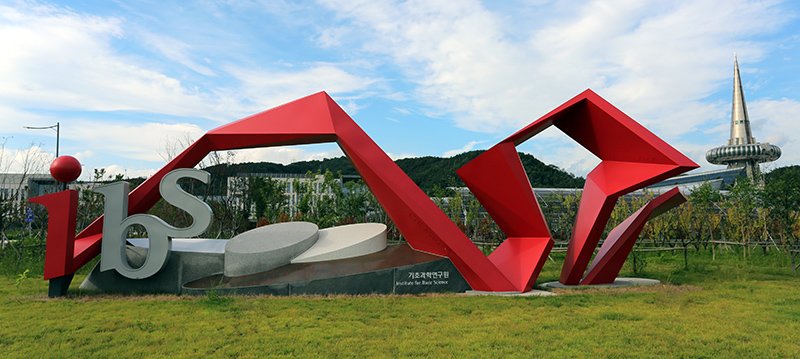The Institute for Basic Science (IBS) (website, Wikipedia) was founded in 2011 to foster outstanding researchers through world-class basic science research conducted on the Korean peninsula. IBS seeks to ensure excellence in research by selecting leading scientists as directors and promotes a supportive and nurturing environment that enables scientists to fully engage in research. The Research Centers of IBS conduct large-scale, mid- and long-term group research that is unavailable at other universities or government-funded research institutes in Korea. Motivated by a driving curiosity about the unknown, the institute was founded with the vision "Making Discoveries for Humanity & Society.” As researchers unleash their creative potential most effectively when they perform adventurous research in an autonomous research environment, scientists themselves choose research themes that are usually novel concepts in their fields.
Using RIKEN and Max Planck Society as benchmarks, IBS aims to establish itself as a global research hub for basic science while also fostering the next generation of leaders in basic science research. It is our belief that advancement in basic science leads to both economic and intellectual progress of society, creating a brighter future for mankind. IBS’ support of basic science will help solve global challenges and offer solutions to fundamental scientific puzzles in a wide array of scientific fields.
To achieve such goals, IBS has four operating principles; excellence, openness, autonomy, and creativity. The first principle is about establishing excellent Research Centers capable of conducting world-class basic science research. Nobel Laureates and renowned scholars make up panels to reform rigorous selection and evaluation procedures. Openness is about using Centers as channels to bring in professors or researchers from outside institutions. The flexible personnel structure, joint research, and the shared use of equipment with local institutions help to create dynamic research hubs where exchanges of world-leading talent and advanced knowledge actively occur. Centers enjoy autonomy in their research and operation as directors are encouraged to venture into new research areas by independently selecting research themes and recruiting the workforce necessary to achieve those themes. Creative ideas require unique research equipment, so IBS purchases large-sale infrastructure and has engineering support ready to provide the necessary modifications for the needs of the research.
